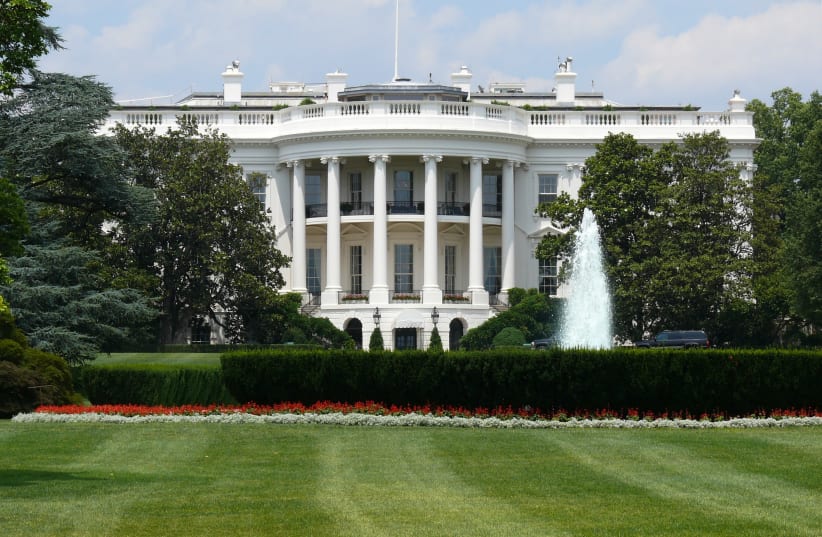Prime Minister Naftali Bennett took a major step toward restoring bipartisanship to the US-Israel alliance and reversing the growing rift between the Jewish state and American Jewry and the Democratic Party by naming an ambassador who knows how to work across political lines.
Michael Herzog was confirmed on August 8 by the cabinet, and he has the support not only of Bennett from the Right but also Yair Lapid, his top center-left coalition partner who will take over the prime ministerial job in two years in an agreed rotation.
Both leaders have made rebuilding bipartisanship and mending relations with the Democrats and American Jews a top priority after a decade of Benjamin Netanyahu’s deep plunge into partisan American politics and his destructive embrace of the GOP and, more recently, former US president Donald Trump.
Even before taking his new post, Herzog is expected to meet with CIA Director Bill Burns, who was visiting Israel this week. They have a longstanding close relationship, having worked together on many issues including the Iran nuclear pact, which is at the top of the agenda for both countries.
Unlike his recent predecessor, Ron Dermer, Herzog was not posted to Washington for the greater aggrandizement of his patron. Known as “Bibi’s Brain,” Dermer was a GOP operative before making aliyah and hitching his wagon to Netanyahu. He brought his Republican partisanship to the embassy – to the detriment of relations with Democrats and a wide swath of American Jewry.
Rebuilding may be the toughest part of Herzog’s job. The issue he expects to be the most challenging will be US President Joe Biden’s intent to rejoin the Iran nuclear agreement.
He has written that he feels the US should negotiate improvements of the original deal before rejoining it. Israel worries what Washington will do to stop Iran if it “continually whittles away” at the pact’s provisions, shortening its breakout time to build a weapon.
Another potential friction point could be the West Bank. In a paper written in February as a fellow of the Washington Institute for Near East Policy, Herzog said the chances of any breakthrough on Israeli-Palestinian peace are “remote” and he doesn’t foresee any Biden peace plan.
Instead, he believes Biden’s team is “realistic” and prefers to “focus on preserving a window of opportunity,” he wrote. “That would include taking Israeli annexation of parts of the West Bank off the table, opposing West Bank settlement expansion and shelving the Trump plan for Middle East peace.”
Two far-Right Knesset members vainly tried to block his nomination because he “actively supports the dangerous two-state solution.”
Herzog does support the two-state solution, as does his younger brother, Isaac, with whom he wrote a paper for the Washington Institute stating, “the one-state solution is delusion.”
Isaac Herzog last month became president of Israel, a post formerly held by their father, Chaim, from 1983 to 1993. Their grandfather was the chief rabbi of Ireland and then Israel.
Bennett does not support Palestinian statehood, while Lapid believes “we need to move forward with the two-state solution,” but the issue is moot for the time being.
Bennett, due in Washington later this month if the COVID crisis allows, will also spend time repairing Israel’s relations with Democrats in Congress and with American Jews, who he knows vote three-to-one for that party.
Herzog will need an infrastructure plan of his own in the wake of Dermer’s bridge-burning campaign. On leaving office, the former ambassador said Evangelical Christians, not Jews, are “the backbone of Israel’s support in the United States” and are thus more important to Israel. Unlike with Jews, he said, it is “very rare to hear Evangelicals criticize Israel.”
The newly minted ambassador is a retired brigadier-general, who was a senior adviser to four defense ministers and played a major role in often secret talks with Syria, Jordan, Egypt and the Palestinians over nearly 30 years under five prime ministers.
He brings to his new job more experience working with top American diplomatic, security, intelligence and political than probably any of his predecessors. He also is well acquainted with the major players in the Biden administration.
Robert Satloff, executive director of the Washington Institute, where Herzog has been an international fellow, called him “a brilliant strategic thinker who understands America and its people and is deeply committed to the US-Israel partnership.”
Jewish and pro-Israel groups across the spectrum, from JINSA to J Street, praised Herzog’s appointment; many already knew him from his years as a peace negotiator, researcher, analyst and senior official traveling between both countries.
Hadar Susskind, head of Americans for Peace Now, expects Herzog will help “deescalating Israel’s hawkish posture in Washington.”
Reversing the extensive damage wrought by a decade of Netanyahu and Dermer won’t be done in one visit or one year. Bennett can make a start when he gets to Washington, but it will be for Mike Herzog to do the day-to-day heavy lifting.
